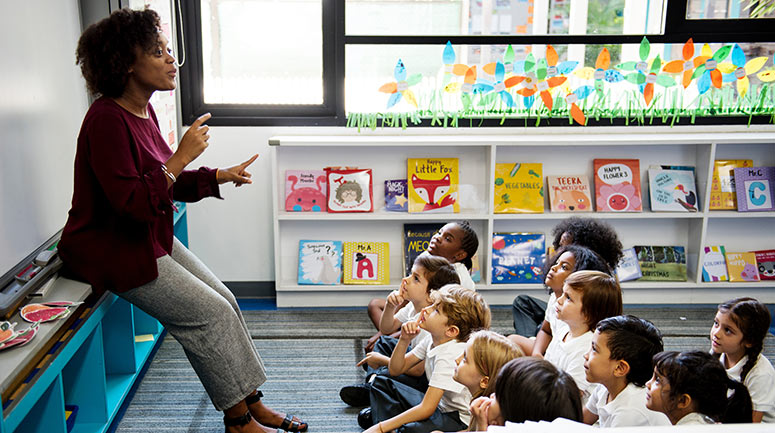
PGCE Early and General Primary Foundation subjects
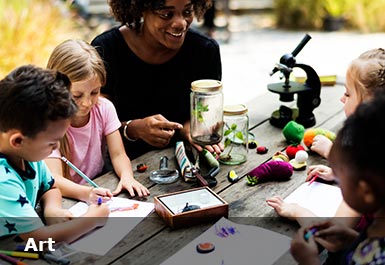 Art
Art
The Art course encourages PGCE students to develop a practical and inventive approach to teaching art in schools through the experience of working with a variety of materials and techniques.
The course suggests ways in which learning may be stimulated and inspired through art by offering a range of activities suitable for Early Years and Primary children.
The theory behind the practice, artists and their work, planning, resources and classroom organisation are also covered.
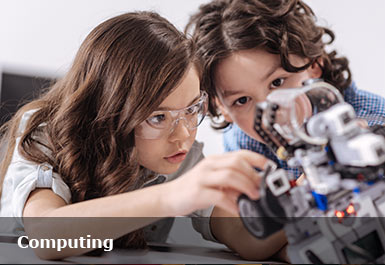 Computing
Computing
The Computing course aims to familiarise PGCE students with core concepts, including such terms as algorithm, simple program, logical reasoning, decomposing, sequence, selection and repetition.
This is done in the context of engaging activities that are appropriate for Early Primary and General Primary children, such as the use of the Bee-bot floor robot and online programs such as Scratch.
E-safety remains a major focus of the course, as does the use of the IWB for teaching and learning. Every PGCE student makes a half-day visit to a lead Computing school in the Faculty Partnership, focusing on children’s learning as they use ICT and Computing hardware and software.
 Design
Design
The Design course offers the opportunity for PGCE students to engage in practical problems to develop confidence and understanding of the thinking and practical skills involved in this area of the curriculum.
PGCE students are able to explore a wide range of design and technology problems, which can be developed in school contexts.
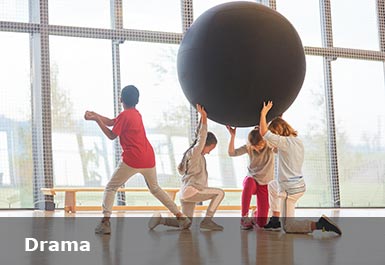 Drama
Drama
The Drama course aims to show a variety of ways in which young children can be engaged in practical drama.
Drama can be a subject in its own right but also a learning medium for exploration of many ideas. Sessions focus on what it is to pretend, have feelings and behave in social situations.
They will examine how teachers can plan for developing drama skills using devices such as ‘Mantle of the Expert’.
The sessions aim to offer a balance of theory and practice through demonstration of methods and resources, discussion and active participation.
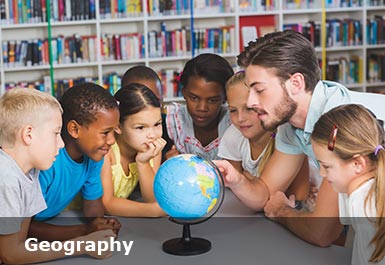 Geography
Geography
PGCE students' perceptions of Geography are the starting point for this course, which explores the potential contribution of the subject to learning in young children.
Topics such as maps in literature, the child's own locality, development education and the establishment of an environment ethic are central themes.
PGCE students are given the opportunity to develop relevant geographical concepts, to acquire graphical and enquiry skills, and to form positive attitudes towards the subject, so that they may become exciting and innovative teachers.
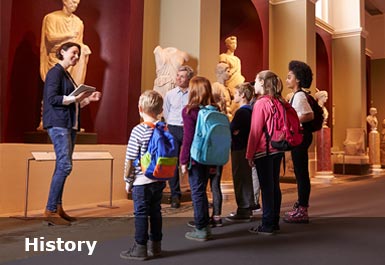 History
History
The History course considers the nature of historical evidence and strategies for engaging children in problem-solving historical detective work.
It also identifies ways in which history topics can extend children's skills and develop imaginative involvement in the past through practical classroom activities.
A large variety of historical sources, teaching aids and materials are evaluated, and PGCE students investigate the local environment as a basis for historical work in schools. PGCE students are pointed to evidence for good practice in early primary and primary history teaching.
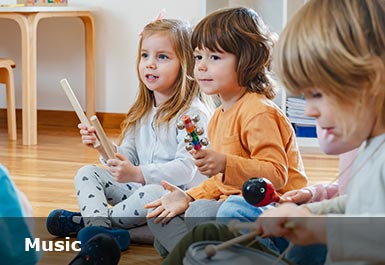 Music
Music
The Music course aims to show how PGCE students, whose musical skills may be limited, can undertake a variety of activities with children.
Approaches to composition, classroom music making and listening are studied within a practical framework.
There is also a consideration of musical development in children and the place of music within the whole of the early primary & primary curriculum.
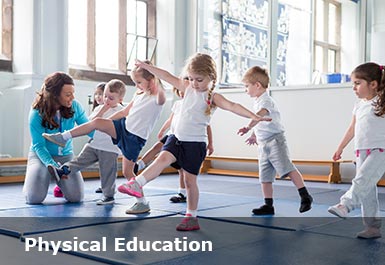 Physical Education
Physical Education
The Physical Education course helps PGCE students reflect on their own PE experiences and how they would like PE to be experienced by the children they will teach in the future.
The course focuses on children's movement development and extends the PGCE students' knowledge and understanding of Games, Gymnastic Activities, Dance and Swimming.
Every PGCE student makes two half-day visits to two local schools in the Faculty Partnership, focusing on specialist teaching of games and gymnastics and children’s learning in these areas. They will also focus on management and organisational elements of lesson planning during these visits.
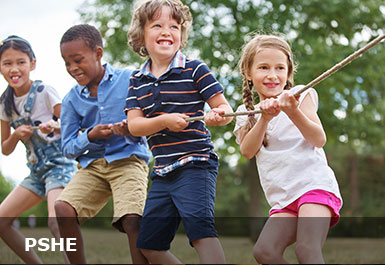 Personal, Social, Health and Economic Education (PSHE)
Personal, Social, Health and Economic Education (PSHE)
Why is PSHE included on the course?
What we teach in the classroom will help our pupils foster lifelong aspirations, goals and values.
With this in mind, the Primary PGCE Curriculum champions the idea that PSHE education isn’t just another school subject; it is a chance to give every child and young person an equal opportunity to develop the skills and knowledge they need to thrive now and in the future so they can face a world full of uncertainty with hope.
PSHE education helps pupils prepare for all the opportunities, challenges, life decisions and responsibilities they'll face. This in turn achieves a 'virtuous circle', whereby pupils with better health and wellbeing can achieve better academically, and enjoy greater success.
What is taught on the PSHE course?
The Cambridge Primary PGCE PSHE Curriculum focuses on empowering beginning teachers to develop their subject, curriculum and pedagogical knowledge so that they become confident and competent teachers of PSHE.
The Cambridge Primary PGCE Curriculum supports PGCE students to understand that effective PSHE education helps children and young people stay healthy, safe and prepared for life – and work – in modern Britain. This includes helping them to deal with critical issues they face every day, such as friendships, emotional wellbeing and change, and giving them a solid foundation for whatever challenging opportunities lie ahead.
For many beginning teachers, certain aspects of PSHE (particularly surrounding statutory elements of PSHE) can feel intimidating. With this in mind, a core aim of the Primary PGCE PSHE Curriculum is to develop the PGCE students’ confidence and signpost resources which can support them to explore potentially sensitive curriculum content in age-appropriate ways.
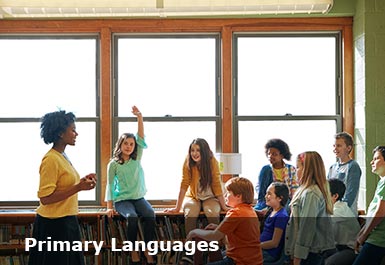 Primary Languages
Primary Languages
Who is taught Primary languages?
The Cambridge Primary PGCE Languages Curriculum focuses on empowering beginning teachers to develop their subject, curriculum and pedagogical knowledge so that they become confident and competent teachers of languages.
Although the teaching of languages is statutory in KS2 only, all PGCE students on the Cambridge Primary PGCE are required to engage with this curriculum, irrespective of their age specialism. This demonstrates our ambition to go beyond statutory requirements and inspire teachers of all age phases to provide children with rich language learning experiences.
What is taught on languages course?
Recognising that very few beginning teachers have a languages background, the curriculum provides PGCE students with an overview of the key subject and domain specific knowledge they will need to be able to teach this subject effectively.
We place great emphasis on how the aims of the National Curriculum can be operationalised through a language-led, knowledge-rich and practice-based curriculum. The three language-knowledge strands are:
- Phonics
- Vocabulary
- Grammar
These three strands underpin the development of confident communication, cultural understanding and creative use of language.
How are languages taught?
By positioning PGCE students themselves as language learners, the Primary PGCE Languages Curriculum promotes this subject as an authentic opportunity for teachers to model the learning process to their pupils.
The curriculum also promotes this subject as a vehicle to explore, celebrate and champion diversity. As such, PGCE students are encouraged to engage with themes including global citizenship, (de)colonisation and cultural stereotypes.
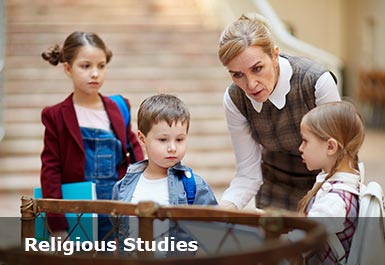 Religious Studies
Religious Studies
This course is an introduction to teaching Religious Education in early primary and primary settings.
PGCE students will consider the curriculum entitlement of children in relation to an agreed syllabus, with an awareness of the special status of faith schools.
The course explores the pedagogical implications of the two attainment targets: learning about, and learning from religion.
Methodological approaches to planning and assessment for learning are explored and linked to educational resources and artefacts. Children's statutory entitlement to daily collective worship in schools is also discussed.
